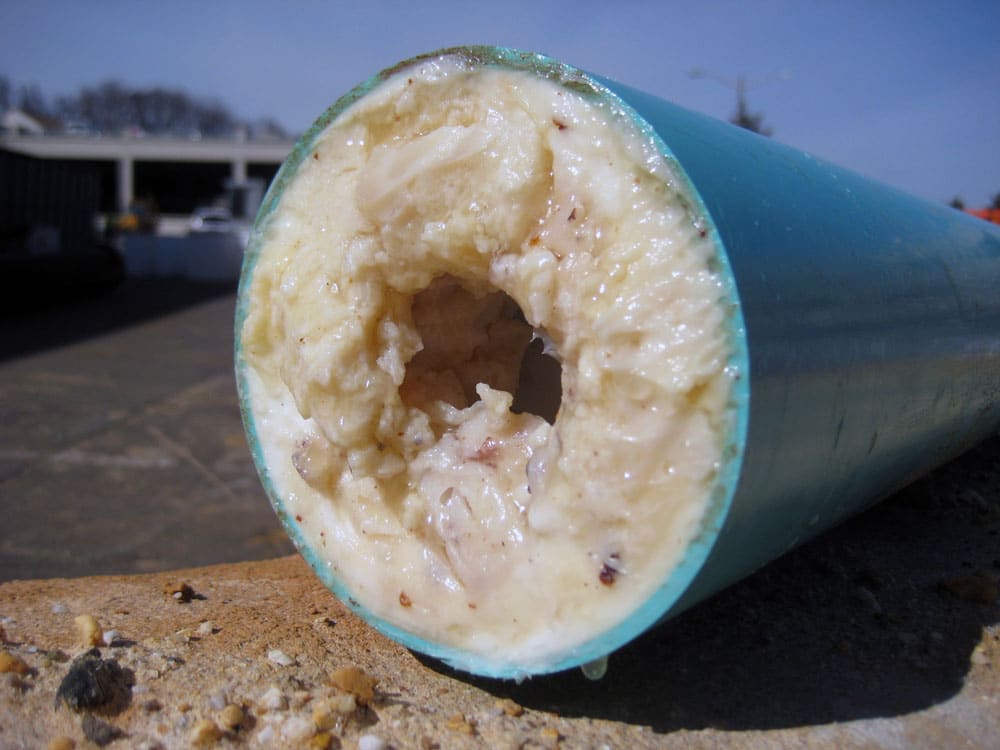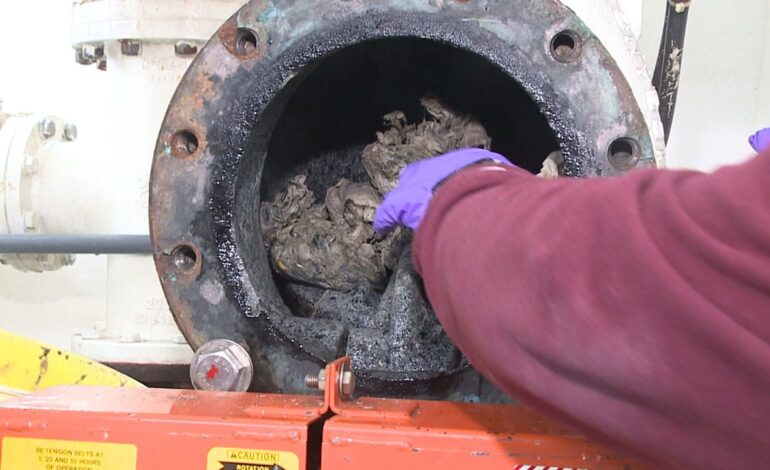DEARBORN HEIGHTS — City officials are joining other Southeastern Michigan authorities in warning against flushing “flushable” cleansing wipes into sewers.
The “flushable” cleansing wipes most commonly used for cleaning and hygienic purposes do not actually decompose as they are flushed down toilets and make their way into municipal sewer systems, which can result in serious and expensive problems for all.
Dearborn Heights City Engineer Ali Dib said that used wipes flushed into residential toilets are accumulating at the Downriver Utility Wastewater Authority (DUWA) wastewater handling system in increasing numbers and are causing serious blockages in both the private residence and municipal sewer lines, as well as plugging and damaging waste-handling pumps.
“In nearly every case, these wipes do not disintegrate like toilet tissue,” Dib said. “Flushed material must, when it becomes wet, disintegrate into pulp so it moves through the pipelines and pumping stations efficiently. Since the wipes do not decompose, they stick together and accumulate, often in giant masses. As the mass grows, other material cannot pass efficiently and attaches itself to the obstruction, making the mass even larger. Eventually, this will cause a blockage in the line, often resulting in serious sewer back-ups in nearby homes and other structures.”
In an informational video produced by the DUWA, Oakland County Pump Maintenance Supervisor David Brown said that recently a resident in his jurisdiction reported that their household sewer back-up alarm had activated and following the investigation, a total of 13 garbage bags full of flushed wipes and other material that had attached to the mass had to be removed.
“Just to demonstrate how serious this problem is, the DUWA staff recently cleaned out just one section of their sewer line network and pumps and collected over 15 tons of still-intact wipes plugging the system,” Dib said. “The stuff simply does not decompose. This not only causes problems for the municipalities, but as Mr. Brown demonstrated in the video, this presents a real threat for sewer back-ups in individuals’ homes.”
Wipes are not the only culprit that impacts the sewer systems. Other things such as fats, oils and grease also contribute to sewer back-ups.

Sewer line backed up with fats and grease. Photo: City of Dearborn Heights
“Municipal staffs are discovering a greater numbers of items that should not be flushed into the system,” Dib said. “They are also finding clothing, towels and a host of other materials plugging up the system that simply shouldn’t be there. When residences and restaurants alike simply wash these down the drain, they collect in the lines and act almost like cement, attaching to the walls of the lines. And as it grows in size, it cements together non-biodegradable materials that come along — until it eventually jams the system, resulting in someone’s home or business suffering a sewer back-up.”
Dib also said that the problem is growing more rapidly than the municipal maintenance staff throughout the area can effectively and afford to resolve.
“Bringing contractors in with specialized equipment to clear the lines of these obstructions is a costly venture,” he said. “And sadly, almost as soon as the work is done, the process starts all over again as people continue to flush or rinse these articles and grease into the system.”
Dib and Mayor Bill Bazzi are now urging residents and business owners to dispose of their waste responsibly.
“People need to understand that as long as these wipes, discarded fabric, grease and oils are getting washed into the system, the problem will continue and probably become worse,” Bazzi said. “Every one of us who pays a municipal water/sewer bill is paying more for the extra work involved in clearing these obstructions out of our lines and equipment. Even worse, if one of these obstructions results in a sewer back-up in their home or business, the cost of cleaning and repair can be astronomical — to say nothing about the health hazards involved, the inconvenience and the trauma of the situation. We as residents and business owners can go a long way toward helping solve the problem… simply discard these materials in the appropriate trash containers instead of flushing or washing them down the drain.”






Leave a Reply